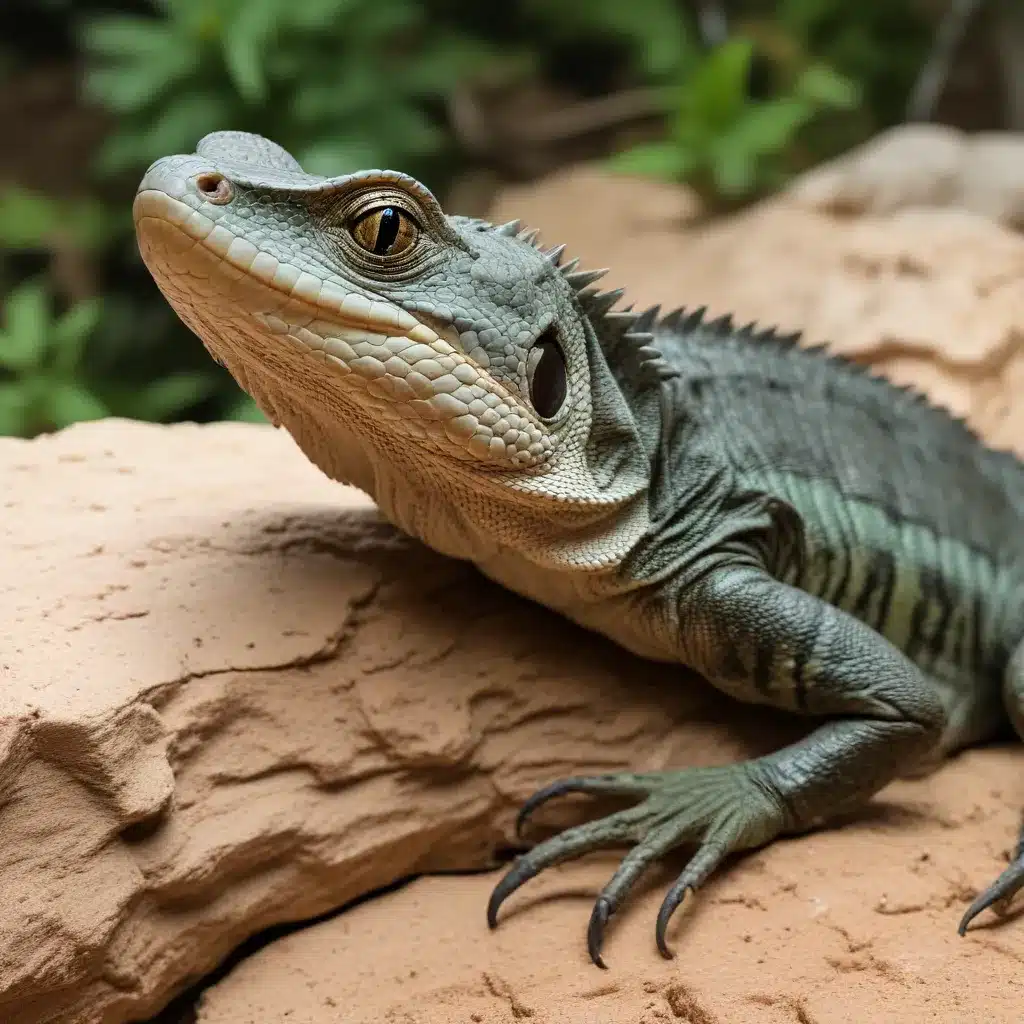
Understanding Reptile Care Requirements
Caring for exotic reptiles requires a deep understanding of their unique needs and behaviors. Reptiles have vastly different habitat requirements, dietary needs, and environmental preferences compared to more common household pets. Providing the proper care is essential not only for the reptile’s health and wellbeing, but also for ensuring responsible ownership that aligns with legal and ethical guidelines.
One of the primary considerations in reptile care is the habitat. Reptiles often require specialized enclosures that replicate their natural environments, with precise temperature, humidity, and substrate requirements. For example, arboreal species like chameleons and tree snakes will need vertically-oriented enclosures with ample climbing opportunities, while fossorial or burrowing species like certain skinks and geckos require deep, loose substrate for digging. Maintaining the appropriate environmental parameters is crucial for preventing stress and promoting natural behaviors.
In addition to the physical setup, reptile owners must also address the animals’ dietary needs. Many exotic reptiles have specialized feeding requirements, often relying on a variety of insects, small rodents, or specific plant matter. Improper feeding can lead to nutritional deficiencies and health issues. Proper research into the natural history and feeding habits of the species is essential to ensuring a balanced, species-appropriate diet.
Table 1: Common Exotic Reptile Species and Care Requirements
| Species | Habitat Requirements | Dietary Needs | Average Lifespan |
|---|---|---|---|
| Bearded Dragon | Dry, warm enclosure with basking area and hides | Omnivorous, including insects, greens, and occasional small rodents | 10-15 years |
| Panther Chameleon | Tall, well-ventilated enclosure with numerous climbing branches | Insectivorous, primarily feeding on a variety of live insects | 5-8 years |
| Burmese Python | Large, secure enclosure with ample hiding spots and temperature gradient | Carnivorous, feeding on small to medium-sized rodents and birds | 20-30 years |
| Leopard Gecko | Dry, warm enclosure with multiple hides and loose substrate | Insectivorous, primarily feeding on crickets, mealworms, and waxworms | 15-20 years |
Beyond the physical and dietary needs, responsible reptile ownership also requires an understanding of the legal landscape. Many exotic reptile species are regulated at the federal, state, and local levels, with specific requirements for permits, licenses, and restrictions on ownership and sale. Failure to comply with these guidelines can result in significant penalties and even the confiscation of the animal.
Ethical Reptile Breeding Practices
Responsible reptile ownership extends beyond individual care; it also includes ethical breeding practices. Breeding exotic reptiles, whether for commercial or personal purposes, requires careful consideration of genetic diversity, health, and the overall wellbeing of the animals involved.
One of the primary concerns in reptile breeding is maintaining genetic health. Inbreeding, which can lead to the expression of deleterious traits, should be strictly avoided. Breeders must carefully track the lineages of their breeding stock and implement strategies to introduce new, unrelated bloodlines to prevent the accumulation of harmful genetic mutations.
Reptile breeding also requires a deep understanding of the animals’ natural reproductive behaviors and cycles. Factors such as temperature, photoperiod, and social interactions can all play a role in triggering breeding behaviors. Providing the appropriate environmental cues and ensuring the physical and psychological wellbeing of the breeding animals is essential for successful and ethical reproduction.
Additionally, responsible breeders must consider the long-term welfare of the offspring. Hatchlings and juveniles require specialized care, nutrition, and housing to ensure their healthy development. Breeders should be prepared to provide guidance and support to new owners, ensuring that the reptiles are placed in knowledgeable and committed homes.
Navigating the Legal Landscape of Exotic Reptile Ownership
The ownership and sale of exotic reptiles are subject to a complex web of federal, state, and local regulations. Understanding and complying with these laws is crucial for responsible reptile enthusiasts and breeders.
At the federal level, the United States Fish and Wildlife Service (USFWS) regulates the importation, exportation, and interstate transport of certain reptile species under the Convention on International Trade in Endangered Species of Wild Fauna and Flora (CITES) and the Endangered Species Act (ESA). Owners and breeders must obtain the appropriate permits and documentation to legally acquire and sell these regulated species.
In addition to federal regulations, individual states have their own laws governing the possession, breeding, and sale of exotic reptiles. These laws can vary significantly, with some states imposing stricter requirements or even banning the ownership of certain species altogether. It is the responsibility of the reptile owner or breeder to research and comply with the specific regulations in their state and local jurisdiction.
Table 2: Examples of State-Level Exotic Reptile Regulations
| State | Regulations |
|---|---|
| California | Requires permits for the possession of many exotic reptile species, including larger snakes and crocodilians. |
| Florida | Allows the private ownership of certain reptile species without a permit, but requires a permit for the possession of venomous snakes and crocodilians. |
| Texas | Allows the private ownership of most reptile species without a permit, but requires a certificate of registration for the possession of certain venomous or large constrictors. |
Navigating the legal landscape of exotic reptile ownership can be complex, and it is essential for both owners and breeders to stay informed and up-to-date on the latest regulations. Consulting with local authorities, veterinarians, and reputable reptile organizations can help ensure compliance and avoid potential legal issues.
Conclusion
Responsible exotic reptile ownership requires a comprehensive understanding of the animals’ unique care requirements, ethical breeding practices, and the legal guidelines governing their possession and sale. By prioritizing the wellbeing of the reptiles, complying with all relevant laws and regulations, and providing high-quality care, reptile enthusiasts and breeders can contribute to the responsible and sustainable growth of the exotic reptile industry.
Readers interested in learning more about exotic reptile care, breeding, and legal requirements are encouraged to visit ExoticReptileForSale.com for additional resources and information.


